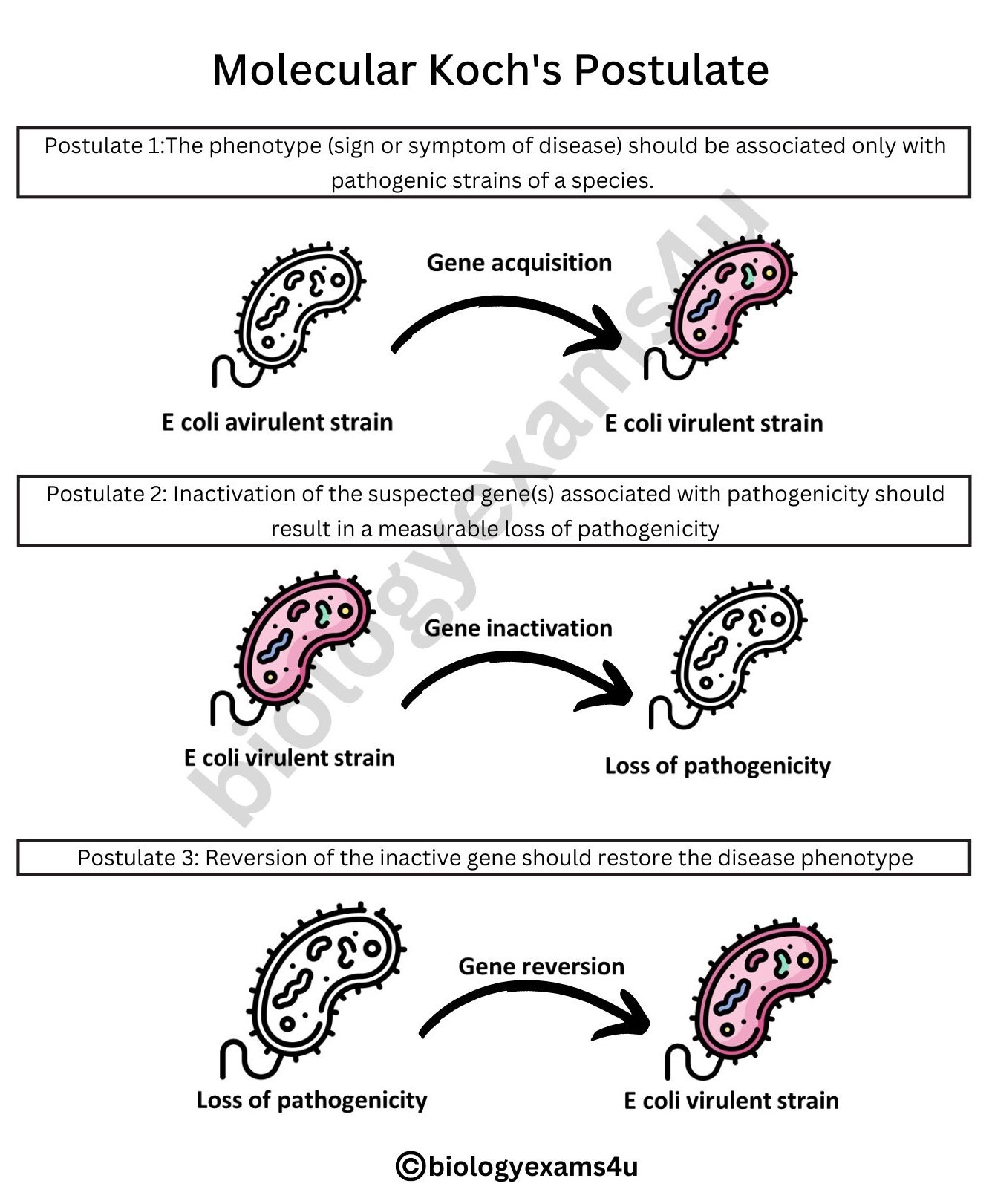In 1988, Stanley Falkow proposed a revised form of Koch’s postulates known as molecular Koch’s postulates using genetic tools. He revised Koch’s postulate incorporating the advancement in the field of microbiology, molecular biology, recombinant DNA technology etc.
Molecular Koch's postulates are used to determine what genes contribute
to a pathogen's ability to cause disease. Genes that satisfy molecular Koch's postulates are often called as virulence factors.
Postulate 1. The phenotype (sign or symptom of disease) should be associated only
with pathogenic strains of a species.
Falkow’s
modifications to Koch’s original postulates explain not only infections caused
by intracellular pathogens such as viruses but also the existence of pathogenic
strains of organisms that are usually non-pathogenic.
Explanation:
Escherichia coli is a member of the normal microbiota of the human intestine and is
generally considered harmless.
Pathogenic strains enterohaemorrhagic E. coli (EHEC): exist because of the acquisition of new
genes by the once-harmless E. coli, is now capable of producing
toxins and causing illness.
Postulate 2. Inactivation of the suspected gene(s) associated with pathogenicity
should result in a measurable loss of pathogenicity
Explanation:
Pathogenic strains enterohaemorrhagic E. coli (EHEC): One of the genes
in EHEC encodes for Shiga toxin, a bacterial toxin (poison) that inhibits
protein synthesis. Inactivating this gene reduces the bacteria’s ability to
cause disease
Postulate 3. Reversion of the inactive gene should restore the disease phenotype
Explanation:
Pathogenic strains enterohaemorrhagic E. coli (EHEC): By adding the gene
that encodes the toxin back into the genome (e.g., with a phage or plasmid),
EHEC’s ability to cause disease is restored.
Limitation of Molecular Koch's postulates
Genetic manipulation of some pathogens is not possible using current
methods of molecular genetics
Additional resource: 9 Exceptions to Koch's postulate
A great way to thank and support us.
- Visit our TpT store by
clicking here.
- Download free resources or
purchase some.
- Please rate the product and
follow us on store.
Thank you so much

